- About
2020 Honolulu Scholars
2020 Honolulu ARCS Scholars
2020 Honolulu ScholarsThe Honolulu Chapter awarded 16 scholar awards in May 2020 to doctoral students in STEM fields at the University of Hawai‘i at Manoa. The $5,000 unrestricted grants provide resources for professional travel, computer and research equipment and materials, and educational and personal expenses.
View 2020 Scholars | 2019 Scholars | 2018 Scholars | 2017 Scholars | 2016 Scholars | 2015 Scholars | 2014 Scholars | 2013 Scholars | Previous Scholars
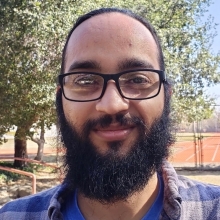 Gagandeep S Anand
Gagandeep S AnandGeorge Orton and Mona Marie Elmore ARCS Award
Institute for Astronomy, (Brent Tully, advisor)Research statement: I use Hubble Space Telescope imaging to investigate the stellar content of nearby galaxies. Able to determine accurate distances to these galaxies, I measure the offset of their velocities from the average expansion rate of the Universe. This tells us about the distribution of matter in the nearby Universe, and allows us to investigate how structures like galaxy groups and clusters have evolved.
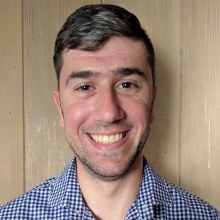 Travis A Berger
Travis A BergerColumbia ARCS Award in Astronomy
Institute for Astronomy (Dr. Daniel Huber advisor)Research statement: My research focuses on using the stellar distances inferred from measurements performed by the Gaia space telescope to improve our understanding of the stars and exoplanets observed by Kepler. In particular, I’m interested in using these improvements to investigate the evolution of exoplanet populations and what that may tell us about planet formation in our solar system and beyond.
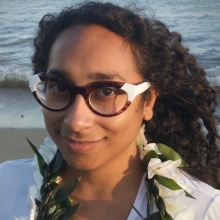 Anamica Bedi de Silva
Anamica Bedi de SilvaGoerge Orton and Mona Marie Elmore ARCS Award
Oceanography, School of Ocean and Earth Science and Techology (Dr. Kyle Edwards, advisor)Research Statement: A multitude of viruses in seawater coexist with the microbial hosts they infect. I study viral immunity among single-celled algae through experimental evolution in the laboratory to determine why some microbes develop resistance while others remain susceptible to infection. I have generated more than a hundred resistant strains of a unicellular algae for growth experiments to determine if resistance slows growth compared to susceptible counterparts.
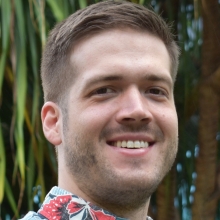 Luke C Campillo
Luke C CampilloSarah Ann Martin ARCS Award
Zoology, College of Natural Sciences (Dr. Robert Thompson, advisor)Research statement: I am interested in understanding how a population can split into two independent populations through a process known as speciation. Geographic isolation is a particularly forceful driver of speciation on island archipelagos. I use data from DNA sequencing to uncover the patterns and processes that drive speciation in Hawaiian birds, focusing on how the dynamics of evolving in an island system, such as having limited contact with other populations and competition for limited resources, have impacted speciation.
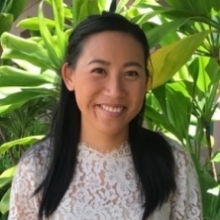 Laurel L. Ching
Laurel L. ChingEllen M. Koenig ARCS Award
Tropical Medicine, Medicial Microbiology and Pharmacology, John A. Burns School of Medicine (Dr. Vivek Neurkar, advisor)Research statement: While the rash and fever associated with Kawaski Disease typically resolve without long term consequences, inflamation of coronary arteries results in enlargement of the blood vessels in a small subset of patients, making it the leading cause of pediatric acquired heart disease. These children are at increased risk for cardiovascular disease for the rest of their lives. We use clinical samples to understand the mechanisms by which changes to the coronary arteries occur and develop new therapeutics to ameliorate them.
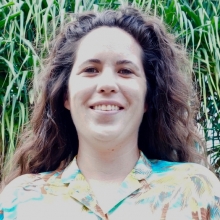 Allexa R. Dow
Allexa R. DowEllen M. Koenig ARCS Award
Schol of Life Sciences (Microbiology), College of Natural Sciences (Dr. Sladjana Prisic, advsor)Research statement: My research seeks to understand the basic biology of the world's deadliest pathogen, Mycobacterium tuberculosis (Mtb), which kills 1.5 million people annually. I have described specific mechanisms Mtb employs to survive severe zinc depletion in the host, a condition other pathogens cannot endure, and I have discovered that these mechanisms contribute to virulence of the pathogen. This is particularly relevant considering that transit through the zinc depleted environment is a necessary step for transmission of the disease.
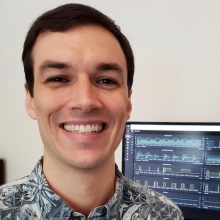 Douglas Ellman
Douglas EllmanBretzlaff ARCS Award in Engineering
Electrical Engineering, College of Engineering (Dr. Yuanzhang Xiao, advisor)Research statement: I use optimization and machine learning techniques to study how distributed energy resources, such as solar, batteries, electric vehicles and smart appliances, can be used to improve the operation of the electric grid.
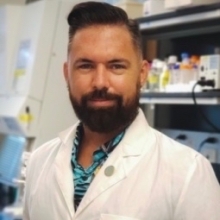 Brien K. Haun
Brien K. HaunEllen M. Koenig ARCS Award
Cell and Molecular Biology, John A. Burns School of Medicine (Dr. Axel Lehrer, advisor)Reearch statement: I am hacking the immune system to uncover protective responses to emerging infectious viruses
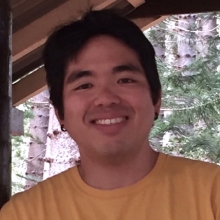 Michael David Honda
Michael David HondaKai Bowden ARCS Award
Molecular Biosciences, College of Tropical Agriculture and Human Resources (Dr. Dulal Borthakur, advisor)Research statement: I am determining the mechanism of iron uptake in giant leucaena, which is used as a nutritious fodder-legume for farm animals.
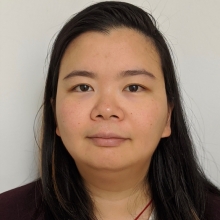 Aileen S. W. Li
Aileen S. W. LiDr. George and Virginia Starbuck ARCS Award in Medicine
Anatomy, Biochemisry and Physiology, John A. Burns School of Medicine (Dr. Yusuke Marikawa)Research statement: Gastrulation is a crucial stage in embryo development that forms the foundation for all tissues and organs in the body and is also the most sensitive to disturbances that can cause embryo lethality and birth defects. I utilize an in vitro model system of mouse embryonal carcinoma stem cells to study the mechanisms of gastrulation and impact of prenatal exposure to drugs, chemicals or health factors that can interfere with embryo development.
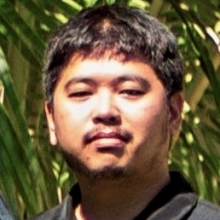 Brenden M. Minei
Brenden M. MineiFrederick M. Kresser ARCS Award in Engineering
Mechanical Engineering, College of Engineering (Dr. Mehrdad Ghasemi Nejhad, advisor)Research statement: The objectives of my research are to develop a novel ceramic-based nano-paste that can be both 3D printed and molded to optimize and develop ceramic nanocomposite parts with armor as well as space structural and optical applications.
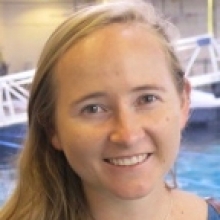 Marisa S. McDonald
Marisa S. McDonaldMaybelle F. Roth ARCS Award in Conservation Biology
School of Life Sciences (Marine Biology), College of Natural Sciences (Dr. Megan Porter, adviser)Research statement: My research focuses on understanding vision in larval mantis shrimp, focusing on ultraviolet vision function and use.
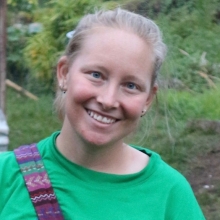 Ashley A. McGuigan
Ashley A. McGuiganARCS Honolulu Scholar Award
School of Life Sciences (Biology), College of Natural Sciences (Dr. Tamara Ticktin, advisor)Research statement: I study the connection between agroforest biodiversity and dietary nutrition in Fiji and the ways agroforestry helps people recover from major cyclone disturbances.
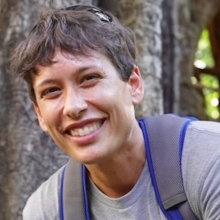 Tristan A. McKenzie
Tristan A. McKenzieToby Lee ARCS Award in Earth Sciences
Earth Sciences, School of Ocean and Earth Science and Techology (Dr. Henrietta Dulai, advisor)Research statement: I study groundwater pollution and discharge dynamics using a combination of field, lab, and machine learning approaches.
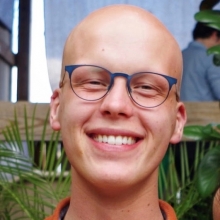 John E. Runburg
John E. RunburgSarah Ann Martin ARCS Award
Physics, College of Natural Sciences (Dr.Jasn Kumar, advisor)Research statement: My research focuses on learning more about the properties of dark matter. Dark matter is the most common form of matter, but we know very little about it because it doesn’t interact with light. I study theoretical models of dark matter and try to devise methods for learning more about it.
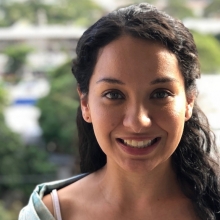 Priscilla S. Seabourn
Priscilla S. SeabournHelen Jones Farrar ARCS Award
Plant and Environmenta Protection Science, College of Tropical Agriculture and Human Resources (Dr. Matthew Meideros and Dr. Helen Spafford advisors)Research statement: The bacterial microbiome can influence physiological traits of mosquitoes and alter their ability to transmit disease. To study how specific environmental and ecological factors influence diversity in the microbiome of the widespread, Dengue- and Chikungunya-vector Aedes albopictus, I conducted DNA sequencing on bacteria in more than 1,000 mosquitoes collected on Maui and O‘ahu. The information may help improve strategies for disease prevention.
2020 Honolulu ARCS Scholars
